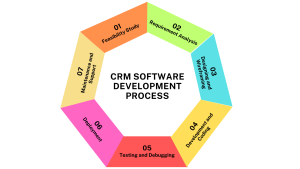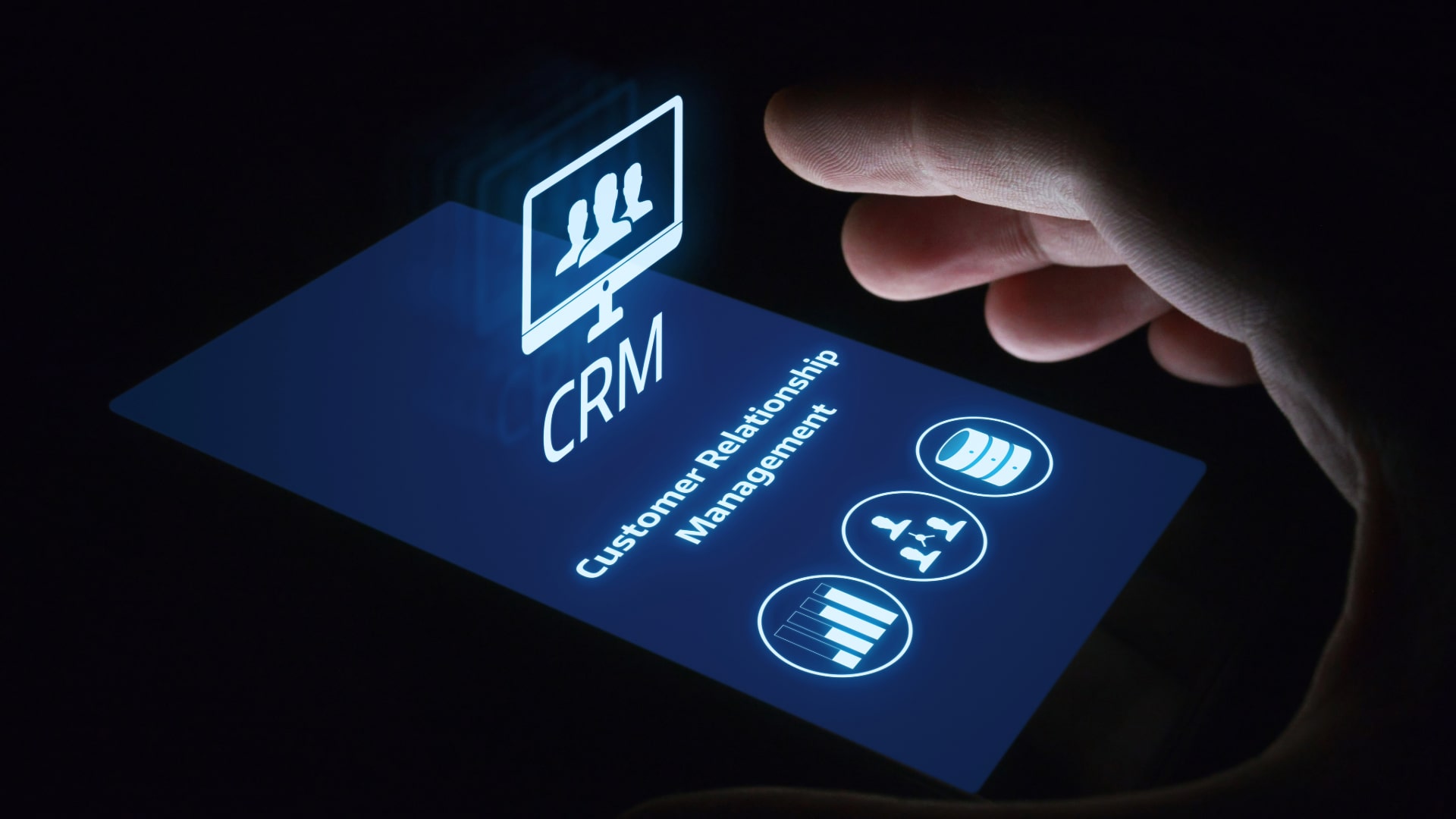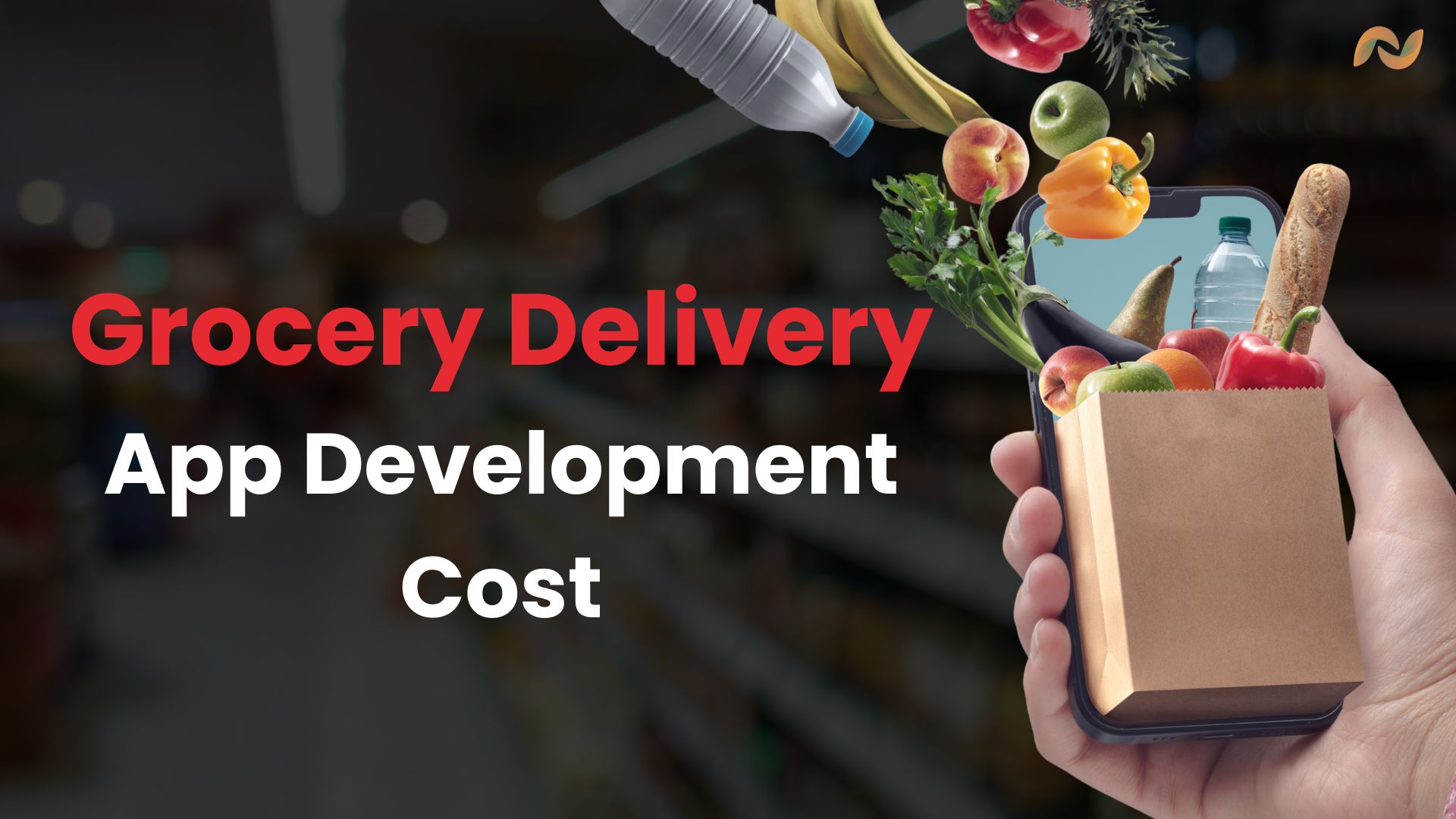Build CRM Software From Scratch in 2025
In today’s rapidly changing world, businesses are getting more complex and generating vast amounts of data daily. Multiple processes are running in a business every minute and it becomes necessary to manage them properly for better productivity. To do that, CRM software becomes an indispensable tool for every business, regardless of its size and industry to develop customer-focused strategies and enhance user experience. Businesses can develop their own customized CRM software with the help of a CRM software development company such as Next Olive Technologies. Let us discover the step-by-step process of custom CRM development in this comprehensive guide.
Table of Contents
ToggleWhat is CRM Software Development?
Customer Relationship Management (CRM) software is used to manage a business’s interactions with its current and potential customers. CRM software helps companies stay connected with their clients, improve revenue, and enhance processes. Developing CRM software can include several features such as sales calls, customer service interactions, marketing emails and messages, etc. CRM software is widely used by businesses to help them manage their numerous clients in one single database to boost productivity. According to Salesforce data, good CRM software is capable of increasing your sales by up to 29%, productivity by 34%, and accuracy of sales forecasting by 42%.
Benefits of Using CRM in Your Business
CRM has a lot of benefits, particularly in sales management, customer handline, and revenue generation, which are foremost important to any type of business whether big or small. But there are several more amazing benefits of CRM you might not know.
[1] Cost Effective Solution
CRM provides all the required data and information into a single digital database which eliminates the need for handwritten paper notes, storage devices, and laptops. Thus, saving a lot of costs for the company. A good custom CRM software development company will ensure that your time and money are used for the betterment of your business by providing state-of-the-art CRM development solutions.
[2] Improved Sales Output
By having CRM software, sales teams can prioritize their time and efforts to close deals more effectively by lead scoring and automated follow-up features of the CRM. It also helps to track sales insights and performance, which can help companies improve their strategies and approaches that may lead to increased sales efficiency and revenue generation over the long term.
[3] Single Source of Information
CRM software can provide businesses with a clear and unified customer profile with a simple, secure, and customizable dashboard with metrics such as customer purchase history, order status, remaining customer service issues, and a lot more. This feature is beneficial for both businesses and customers to establish better communications with each other.
[4] Better Customer Services
Companies can use CRM systems to improve their customer services and solve their issues as efficiently as possible. Businesses can offer personalized assistance and resolve customer issues efficiently while focusing on facilitating automated tasks such as ticket routing and response management.
[5] Managing Marketing Processes
CRM allows the marketing team of your business to manage the marketing campaigns, leads, and customer management. By dividing the customers based on parameters such as demographics, preferences, behavior, or purchase history, the marketing team can launch targeted ad campaigns that align with specific audiences.
Types of CRM Software
There are generally 3 types of CRM. Every CRM has its unique features and serves different purposes. Every business has its own unique needs. That is why it is necessary to develop different CRM types to fulfill every business’s unique needs.
[1] Operational CRM
An operational CRM streamlines manages, and simplifies a company’s main processes. It also expands marketing, sales, and customer service in helping the company generate leads and convert those leads into clients. It also provides the customer service infrastructure necessary to retain customers. It has 3 major components; Marketing Automation, Sales Automation, and Customer Service.
[2] Analytical CRM
This type of CRM helps businesses make data-driven decisions by analyzing sales and marketing data on various parameters and generating reports of important KPIs and insights. CRM connects to customer data and extracts data based on their behavior, preferences, etc for further analysis and report generation processes.
[3] Collaborative CRM
A collaborative CRM combines marketing and sales data from various sources so that everything works together to close deals, and provides each team of sales and marketing a clean and clear picture of customers’ needs and expectations and make better decisions. Many firms provide collaborative CRM system development services.
Types of CRM Application Development Services
There are different types of CRM development services. Companies can choose among these types that align perfectly with their business needs and requirements. Many reputed CRM software development companies offer fully customized CRM solutions. But you might be wondering what will be the CRM software development cost. Well, the cost varies on many different factors such as type, complexity, and size of CRM software, etc.
[1] Microsoft Dynamics 365 CRM Development Services
Dynamics 365 is a set of various cloud-based applications offered by Microsoft in sales, marketing, finance, etc that help businesses manage and improve operational efficiency and reduce complexities of the business while managing overall costs. MS Dynamics 365 developers integrate the MS Dynamics applications into CRM software to enable businesses to take full advantage of the Microsoft ecosystem and also provide Microsoft Dynamics 365 plugin development.
[2] Zoho CRM Development
Zoho CRM is like a single database to brings business sales, marketing, and customer support activities together, and streamlines business processes, policies, and people including the customers in one platform. Zoho offers cost-effective CRM and ERP solutions to small and medium as well as large-scale enterprises. Our Zoho CRM developers have experience in offering Zoho app development services with the help of the Zoho dev console.
[3] Custom Real Estate Software Development
CRM for real estate developers helps housing and building businesses to keep a detailed track of their valuable customers and offers them the best-in-class services such as personalized guidance, virtual site tours, detailed property descriptions, and everything a customer needs while looking to purchase a house or property. Real estate developers can define and prepare strategies based on analytical data of the customers’ preferences, etc, and launch personalized ad campaigns for lead generation.
[4] Salesforce CRM Development
Salesforce is one of the leading CRM development firms that offers enterprise-level ERP and CRM solutions to various businesses. By harnessing the features of Salesforce, developers can provide customized Salesforce CRM implementation services to meet the business needs of their clients. Salesforce CRM has many diverse features such as cloud connectivity, data management, analytics, scalability, security, and integration that make it a truly unique CRM solution.
[5] Odoo CRM Development
Odoo is one of the best customer-centric tools for marketing and sales needs for every business. Odoo CRM development involves customizing and upgrading Odoo to fulfill the business requirements of businesses. There are many diverse features of Odoo such as a centralized management system for business processes, customization and scalability, streamlined marketing and sales processes, etc.
[6] React Native CRM Development
React is one of the most popular javascript-based frameworks which uses Dart as the programming language. React’s cross-platform development capabilities enable to creation of CRM in React.js. React also has several other features such as native performance, reliability, a faster development process, and a large community that provides new widgets and plugins to upgrade the framework even more.
[7] Bespoke CRM Development
A Bespoke CRM software system is designed to meet a company’s specific business needs. It is generally more flexible as compared to custom CRM development as it is developed around the company’s existing workflows. Bespoke offers many unique features such as flexibility, scalability, security and data ownership, and cost-effectiveness. Bespoke CRM system developers utilize these features to develop CRM solutions.
[8] Business Development CRM Software
Business development CRM software helps the business manage and grow its relationship with various stakeholders more effectively. There are many features of CRM for business development such as customer support systems, marketing management, sales management, data analytics and reporting, etc. Next Olive Technologies is the leading CRM development services provider that can help your business with tailored CRM solutions.
[9] CRM Mobile App Development
CRM mobile app development involves creating a cloud-based customized CRM mobile app for businesses. Many businesses are online and hence it becomes mandatory to manage various business processes anywhere and anytime if required. CRM mobile apps have lots of unique features such as engaging interfaces, data security, 2-factor authentication, responsive menus, faster loading speed, etc.
[10] CRM for Economic Development
This type of CRM is usually developed for the government and its various departments. Government officials use this CRM to keep track of various projects that take years to finish and their collaborators, members, and customers. The government can use this data to further improve its strategies such as supplier, builder, contractor, time duration, budget, etc for various public development projects.
[11] HubSpot CRM Development
HubSpot CRM offers lightweight and more cost-effective solutions for small and medium-sized businesses. Hubspot offers various tools and features for creating custom HubSpot-based CRM software such as rich code samples, versatile SDKs, a Powerful command line interface (CLI), robust integrations with popular tools such as VS Code and GitHub, and Dynamic UT components.
[12] LeadMaster CRM Development
LeadMaster is one of the prominent all-in-one CRM and ERP solutions provider companies. Its CRM software services offer CRM systems for managing customer relationships, sales management, marketing automation, and help desk management for various organizations of different sizes. Our developers can integrate LeadMaster features into custom CRM solutions for business requirements.
[13] Sugar CRM Development
Sugar CRM offers a great CRM system to manage leads and conversions so that businesses can map their top goal of increasing their revenue and it also has a best-in-class mobile application that provides real-time access to customer data for decision making. Developers can leverage the functionalities of Sugar CRM to create web-based or mobile-based solutions for businesses.
[14] Suite CRM Development
Suite CRM is an open-source CRM application that is built around the open-source Sugar CRM version. It offers similar functionalities and features as Sugar CRM but Suite CRM developers can fully customize it and create state-of-the-art CRM solutions for fulfilling various business needs due to its open-source nature.
Custom CRM vs Pre Build CRM. Which one to choose?
Here is a side-by-side comparison between these two types of CRM software.
Level of Customization: Custom CRM is fully customizable to fit the specific needs of the business, whereas out-of-the-box CRM offers only limited customization options.
Implementation and Testing Duration: Custom CRM requires a longer duration for implementation and testing due to the need for development, while out-of-the-box is much quicker and often ready for use upon purchase.
Cost: Developing and maintaining a Custom CRM involves higher costs, while out-of-the-box CRM is more affordable, generally following a subscription-based model.
Flexibility: Custom CRM is highly flexible and can adapt to specific business processes, while out-of-the-box CRM is moderately flexible, offering some adjustments within predefined limits.
Scalability: Custom CRM is highly scalable and can be tailored to business needs as they grow. In contrast, out-of-the-box CRM scales according to higher-tier subscription plans.
Integration: Custom CRM can integrate with existing systems more easily, providing tailored integrations. Out-of-the-box CRM comes with standard integrations, and additional customizations are available based on need.
Maintenance and Support: Custom CRM requires external support from developers or specialized teams, whereas out-of-the-box CRM includes vendor-provided support.
Ownership: With Custom CRM, the business fully owns the system, allowing complete control. out-of-the-box CRM creates vendor dependency, as the solution is managed externally.
Updates: Custom CRM requires manual updates from an external provider or internal IT team, while out-of-the-box CRM benefits from automatic updates managed by the vendor.
UI/UX: Custom CRM allows fully customizable user interfaces and user experiences to suit specific needs, whereas out-of-the-box CRM offers standard customization options that are typically more limited.
Security Features: Custom CRM enables businesses to implement tailored security features. In contrast, out-of-the-box CRM offers standard security features, which may suffice for most smaller or medium-sized businesses.
Best For: Custom CRM is ideal for large enterprises with complex needs. On the other hand, out-of-the-box is more suited for small to medium-sized businesses with standard CRM needs.
AI Integration in CRM Development

Artificial Intelligence (AI) is the most rapidly growing and continuously evolving technology in the world. AI has made our lives easier to an extent but in the realm of business, AI is like a boon. AI is performing tasks that are very repetitive and time-consuming such as automatic data entry and replies through chatbots.
Integrating AI features and tools in CRM software systems has greatly increased their overall functionalities and enabled businesses to leverage AI’s full potential in improving business processes and increasing productivity.
> AI can analyze large datasets to provide detailed insights and reports for decision-making purposes and customer relationship development.
> AI helps to automate several routine repetitive tasks and optimizes communication for the teams to focus on more productive tasks and solve complex customer needs.
> AI also enables predictive modeling using customer datasets to predict and forecast trends and customer behavior for decision-making purposes.
CRM Software Development Process

Stage 1: Feasibility Study
The first involves a meeting with the client to get the details of the project idea. This step includes gathering information and assessing various project components in terms of predetermined financial and development limitation standards. After evaluating all project-related factors, developers and analysts will conclude whether or not it is possible to finish this project within the allocated time frame and budget constraints. In short, a feasibility study determines whether a software project will be practically possible. Whether a project is feasible depends largely on how it will function in the market, what will work, what other competitors have developed, and how long this software will last.
Stage 2: Requirement Gathering and Analysis
After the feasibility study is completed, it is time to get the proper details of the project requirements from the client. This stage involves those tasks that go into determining the needs or requirements to meet for a new or modified software project, taking account of the possibly conflicting requirements of the various stakeholders, and analyzing, documenting, validating, and managing software or system requirements. After all the requirements are gathered, a team conducts a detailed analysis of the requirements to determine the language, frameworks, tools, and technologies needed to develop the CRM software project.
Stage 3: Designing and Wireframing
After the requirements are analyzed, a team of designers and developers work together to create a prototype of the proposed software project. The prototype provides a glimpse of how the actual development build might look and function like. Multiple simulations of the prototype are performed on a machine. Afterwards, a wireframe or a blueprint of the final software is designed with every single component explained in detail. The UI/UX designers also play a big role as they work with front front-end team and are responsible for the front-end looks and interfaces of the application.
Stage 4: Development and Coding
This is the main phase where the actual development of the project commences. The project is divided into several modules based on the functional and non -functional requirements. Each module is assigned to a developer or development team for the backend and front-end development. Expert designers also assist the front-end development team in the UI/UX part of the project. Each module also contains several sub-modules which are developed individually by developers. After the development of the modules is completed, all the modules are integrated after rigorous testing. Popular frameworks such as Flutter, .NET, etc are used to develop cutting-edge CRM software solutions.
Stage 5: Testing and Debugging
After the development is completed, it is time for testing. Testing ensures that the project is working without any errors or bugs. Mainly two types of testing are performed; unit testing and integration testing. Unit testing is done to verify and highlight any potential issues in the modules and integration testing is done to ensure the modules work fine after integrating them. If there is any known issue, the testing team notifies the development team to get it fixed. Testing also ensures there is not any missing feature or requirement as it would affect the overall functionality and quality of the product.
Stage 6: Deployment
After the testing is done, the final software product is ready to be launched in the market. Final documentation and paperwork such as terms and conditions, licensing, and creating a user manual are done before handing over the product to the client. The client will then launch the product into the market to reach a wider audience. A good UI/UX will ensure better user engagement and retention.
Stage 7: Maintenance and Support.
Technology is rapidly evolving. So the software product must have the latest features to keep the productivity on top of the line. Maintenance of the software is done regularly in the form of regular updates so that it keeps running fine. 24/7 support is also provided just in case the client or user faces any issues or difficulties at any time.
Technologies used in CRM Software Development
[1] Frontend Tech
- HTML, CSS, JavaScript
- React.js / Angular.js / Vue.js
- Bootstrap / Material UI / Tailwind
[2] Backend Tech
- Node.js / Express.js
- Java / Spring Boot
- Python / Django
- Ruby on Rails
- PHP / Laravel
[3] Database
- MySQL
- MongoDB
- Microsoft SQL Server
- Oracle Database
[4] APIs
- RESTful APIs
- GraphQL
- SOAP
- OAuth / JWT
[5] Cloud and Hosting
- AWS / Azure / Google Cloud
[6] DevOps
- Docker
- Kubernetes
- Jenkins / GitLab CI/CD
[7] Analytics
- PowerBI / Tableau
- Google Analytics
Cost to develop a CRM software
CRM software development involves a detailed cost breakdown across various stages and components. Let us see the complete details of the cost breakdown:
[1] Planning and Research ($5,000 – $30,000):
This includes market research, competitor analysis, feature planning, and creating a roadmap.
[2] UI/UX Design ($20,000 – $50,000):
Designing intuitive user interfaces, wireframes, and prototypes to ensure a seamless user experience.
[3] Core Development ($100,000 – $300,000):
- Frontend Development: Building the user-facing components using frameworks like React or Angular.
- Backend Development: Creating a robust architecture with languages like Java, Python, or Node.js and implementing a database like PostgreSQL or MongoDB.
- Cloud Integration: Setting up hosting on platforms like AWS, Azure, or Google Cloud for scalability and performance.
[4] Third-Party Integrations ($20,000 – $100,000):
Adding integration with email platforms, payment gateways, analytics tools, and ERP systems.
[5] Testing and Quality Assurance ($30,000 – $70,000):
Rigorous testing for bugs, usability issues, and performance across devices and browsers.
[6] Deployment and Maintenance ($10,000 – $50,000 annually):
Includes deploying the system to the cloud, ongoing server costs, bug fixes, and periodic updates.
[7] Optional Advanced Features:
- AI and Machine Learning Capabilities ($50,000 – $150,000): Tools like predictive analytics and automated recommendations.
- Mobile App Development ($50,000 – $100,000): Dedicated mobile apps for Android and iOS platforms.
[8] Post-Launch Support and Training ($10,000 – $30,000):
Employee onboarding, training materials, and customer support infrastructure that includes post-deployment maintenance and technical support.
Developing a custom CRM involves various stages and components that require extensive research and implementation to meet the specific business requirements effectively. In conclusion, the cost of developing CRM software depends upon the size and complexity of the application. Generally, it lies between $5,000 to $30,000 for a basic application, $30,000 to $100,000 for medium-sized software, and over $100,000 for highly advanced and complex software.
Selecting the best CRM software development company
Choosing the right CRM development company is an important decision because it can affect the growth of your business. Next Olive Technologies has been in this field for over 12 years and has delivered more than 50 successful CRM and CMS software solutions to clients in more than 20 countries. With a team of over 100 experienced CRM software developers, the company is known for its client-centric approach that ensures end-to-end communication in the development process. Next Olive is dedicated to delivering timely, cost-effective, and high-quality solutions tailored to meet your unique business needs. Their expertise and dedication make them a reliable choice for businesses looking to streamline operations and enhance customer relationships.
Conclusion
Technology is rapidly changing, and so the businesses. More and more data is being generated in today’s world and many companies are using it to make precise decisions and perform accurate predictions of upcoming trends. It is important to choose the right CRM software for your business that aligns with your business vision, mission, and goals. And most importantly, it is necessary to select the right CRM software development company that perfectly aligns with your budget and timeframe.
Next Olive Technologies is the foremost custom CRM Development Company.
- Best CRM for business development: Zoho CRM, HubSpot CRM
- Best CRM for economic development: SugarCRM, SageCRM
- Best CRM for real estate developers: Freshsales, Wise Agent
If anyone wants to build custom CRM software from scratch, they must contact a good CRM development company such as Next Olive Technologies.
As a custom CRM software development company, we provide custom CRM using Flutter development and Flutter CRM app development services to our clients.
The Dynamics 365 tutorial for developers is available on the official website of Microsoft. The tutorial will also help to understand the dynamics CRM 365 new features for developers.
Yes, we have experienced Pipedrive developers for Pipedrive CRM-based development solutions. We also have Microsoft Dynamics 365 CRM developers.
Yes, we offer fully tailored CRM software solutions for various real estate developers.
The cost of CRM development depends upon several factors such as complexity and type of software. Generally, it lies between $3,000 to $700,000.





